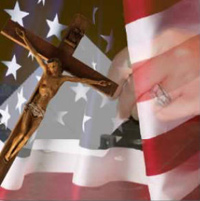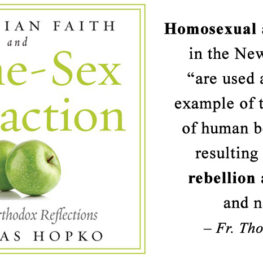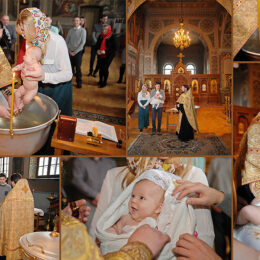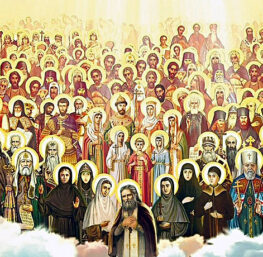 by Thomas Farr –
by Thomas Farr –
Is religious freedom necessary for other freedoms to flourish? This is indeed a big question. It implicates an array of philosophical issues and scholarly disciplines, but it also has distinctly practical, even strategic, dimensions. That is to say, it raises questions not only about human nature and human flourishing, but about the freedom and stability of whole societies, as well as international peace.
The “other freedoms” with which we are here concerned typically exist in a mature democratic system of civil society and ordered liberty. They include the freedoms of expression, association, assembly, economic activity, and equality under the law, and freedom from persecution or unjust violence.
If the answer to our question is “yes,” then religious liberty should be seen not only as a right that is critical to individuals, but also as a kind of linchpin for the bundle of freedoms that enable democracy to take root. If the other freedoms are somehow dependent on religious liberty, nations experimenting with democratic governance (think Egypt or Iraq) are unlikely to succeed without it. Furthermore, without religious freedom they are less likely to contain or eliminate violent religious persecution, extremism, or terrorism.
If, on the other hand, the answer is “no,” then religious freedom can be seen as important or unimportant, but — in either case — largely separable from human flourishing or the other freedoms characteristic of successful democracies.
We will return to human flourishing at the end of this essay. As for the broader issue of ordered liberty, both history and modern scholarship provide compelling evidence that religious freedom is indeed a necessary condition for sustaining the liberties that make democracy last. Of course, the other liberties are also critical. In a very real sense, each is necessary to the whole. In the 21st century, however, religious freedom is in global deficit (seventy percent of the world’s people lives in nations in which religious freedom is highly or very highly restricted). This factor increases the salience of our big question.
What is at Stake?
Before exploring the answer, let us briefly define what we are talking about. Religion can usefully be understood as the human quest for other-than-human sources of ultimate meaning and purpose. It typically entails an effort, by individuals and communities, to understand, commune with, and express truths about a transcendent reality. Individuals and communities often seek to organize their lives around this reality, to be guided by it in their moral conduct, and to manifest the truths they believe they have discovered. Recent studies in developmental psychology suggest that the religious quest is natural to human beings.
Religious freedom, then, is the right, protected in law, to engage in the religious quest, either alone or in community with others, in private and in public. It begins with an interior right to believe or not. It typically carries the believer into relationships with others of like mind and spirit and, ultimately, into associations that have both private and public dimensions: prayer or worship services, the purchase or sale of property, investment of funds, building houses of worship, training clergy, and inviting others to join the religious community.
Some religious acts, by individuals or communities, represent a public pursuit of religious obligation, or witness of truth claims, in civil society: for example, the establishment of religious hospitals, schools and colleges, homes for the aged, soup kitchens, or immigration services. Some carry religious actors into political discourse and competition, forming religion-based political parties, or making religion-based political arguments for or against laws and policies. Religious freedom is the civil right of both individuals and communities to perform these acts on the basis of full equality under the law.
“Equality under the law,” of course, imposes limits. All religious beliefs and acts in civil and political society are not, per se, equal. Those that are violent or destructive of liberal democratic norms are forbidden or limited by law.
Now to Answering our Big Question
First, note that religious freedom as here defined includes other fundamental freedoms. They are integral elements of religious freedom. In pursuing the religious quest, religious actors exercise freedom of belief or non-belief, expression, assembly, and association. They must enjoy full equality under the law, and freedom from persecution and unjust violence.
But can religious freedom be seen as necessary for the flourishing of the other freedoms within pluralist societies comprised of many religious and non-religious citizens and views? There are good reasons to believe that the answer is yes. Two historical examples will help illuminate those reasons.
First, America’s founding generation identified religious freedom as “the first freedom” because they saw it, in effect, as a precondition for the other freedoms. James Madison wrote that each of us has rights that flow from the duty we owe God. “This duty is precedent, both in order of time and degree of obligation, to the claims of Civil Society. Before any man can be considered as a member of Civil Society, he must be considered as a subject of the Governour of the Universe.”
Further, Madison insisted that if men were to fulfill their obligation to God they must have freedom — especially freedom from the coercive powers of the state. “The Duty which we owe our Creator, and the manner of our discharging it, can be governed only by Reason and Conviction, not by Compulsion or Violence; and therefore all men are equally entitled to the full and free exercise of it according to the dictates of conscience, unpunished and unrestrained by the Magistrate. . . .”
Here, then, in man’s duty to the God who created him, and gave him reason and will, lay man’s natural right to religious freedom. In other words, performing the duty required freedom, or, as Madison put it, the right of “free exercise” of religion. To the founders it was necessary to the operation of the other freedoms. As George Washington expressed the point in his final farewell address: “Of all the dispositions and habits which lead to political prosperity, religion and morality are the indispensable supports.”
A second example from contemporary history: political scientist Samuel Huntington wrote that the third wave of democratization, which began in the 1970s and extended into the 1990s, was dominated by Catholic nations, and a key element of their transition to democracy was the Church’s embrace — during the Second Vatican Council — of religious liberty for all.
In other words, the Church’s adoption of religious freedom helped trigger a movement toward democracy in Catholic countries, thereby encouraging the emergence, and the merging, of the other freedoms. In effect, Catholic clergy and laity were spurred to make public arguments that weakened the hand of authoritarian governments (many of which had been allied with the Catholic Church), thereby expanding the opportunity for democratic civil society and political movements to emerge. Importantly, the new Catholic articulation of religious liberty supported the expressive and associational freedom and equality of non-Catholics within civil and political society.
It appears that religious freedom may have had a galvanizing effect. In nations like Poland, Spain, Chile, and the Philippines, other freedoms had existed to one degree or another – a relatively free press, some economic freedoms, or limited forms of associational freedom. But until religious liberty became part of an interlocking web of key freedoms, the others seem to have been insufficient to trigger either a transition to democracy or its consolidation.
Why might this be the case? Because any state that protects religious liberty thereby limits itself. Religious liberty empowers religious actors both to perform services that might otherwise be carried out by the state, and to adhere to an authority beyond the state. For this very reason, authoritarian governments might understandably permit some secular assembly and speech, while banning or restricting religious assembly and speech. Such has been a pattern throughout history – from Stalin, Mao and Hitler, to Mexico’s Plutarco Calles and Syria’s Bashar Assad.
By the same token, empirical studies are confirming a strong relationship between religious freedom and the other freedoms that contribute to the longevity of democracy. The work of sociologists Brian Grim and Roger Finke, for example, shows high statistical correlations between religious liberty and the presence of the other fundamental freedoms that ensure the longevity of democracy, including civil and political liberty, freedom of the press, and economic freedom. Religious freedom is also highly associated with overall human development, and the absence of violent religious extremism. As Grim notes, correlation does not prove causation. He concludes however, that “advanced statistical tests suggest that there is indeed a critical independent contribution that religious freedom is making” to the other freedoms.
So Where Does This Leave Us?
To repeat, history and modern scholarship (both theoretical and empirical) provide reasons to believe what common sense would suggest. In order to mature and last, democracies require a bundle of necessary, interlocking freedoms, including religious freedom.
But there appears to be something distinctive about religious freedom, something close to what the American Founders meant when they declared it the “first freedom.” Religion bears on the most fundamental and powerful questions that most human beings feel compelled to answer, such as, “why do I exist and what is my destiny? Given my understanding of transcendent reality, what must I do to live a good life?” The religious questions, in other words, are not instrumental. They arise naturally and address ultimate things, with an inherent power that seems universal and timeless. The religious questions, in short, beckon us all.
It is unsurprising then, that the answers we derive from the religious questions shape thought and compel action, both individually and in association with others. As such, the questions and the answers inevitably bear on the institutions of civil society and the norms of political life.
This is why the growing international deficit in religious freedom is so troubling. It is also why the travail of religious liberty in Europe and the United States is, or ought to be, a reason for deep concern for religious and non-religious citizens. As we have seen, the evidence suggests that democracies will not remain stable unless they protect religious liberty (and the bundle of freedoms to which it is so intimately tied).
But, at the end of the day, the question returns to individual human beings. Religious freedom is the sine qua non of living freely. You may allow me to vote, own property, and associate freely in the public square in every other way. But if you do not permit me to speak and to act on those beliefs about ultimate reality that define who I am and why I am on this earth, then the other freedoms mean little. In a very real sense, then, all human freedoms depend on the freedom of religion.



